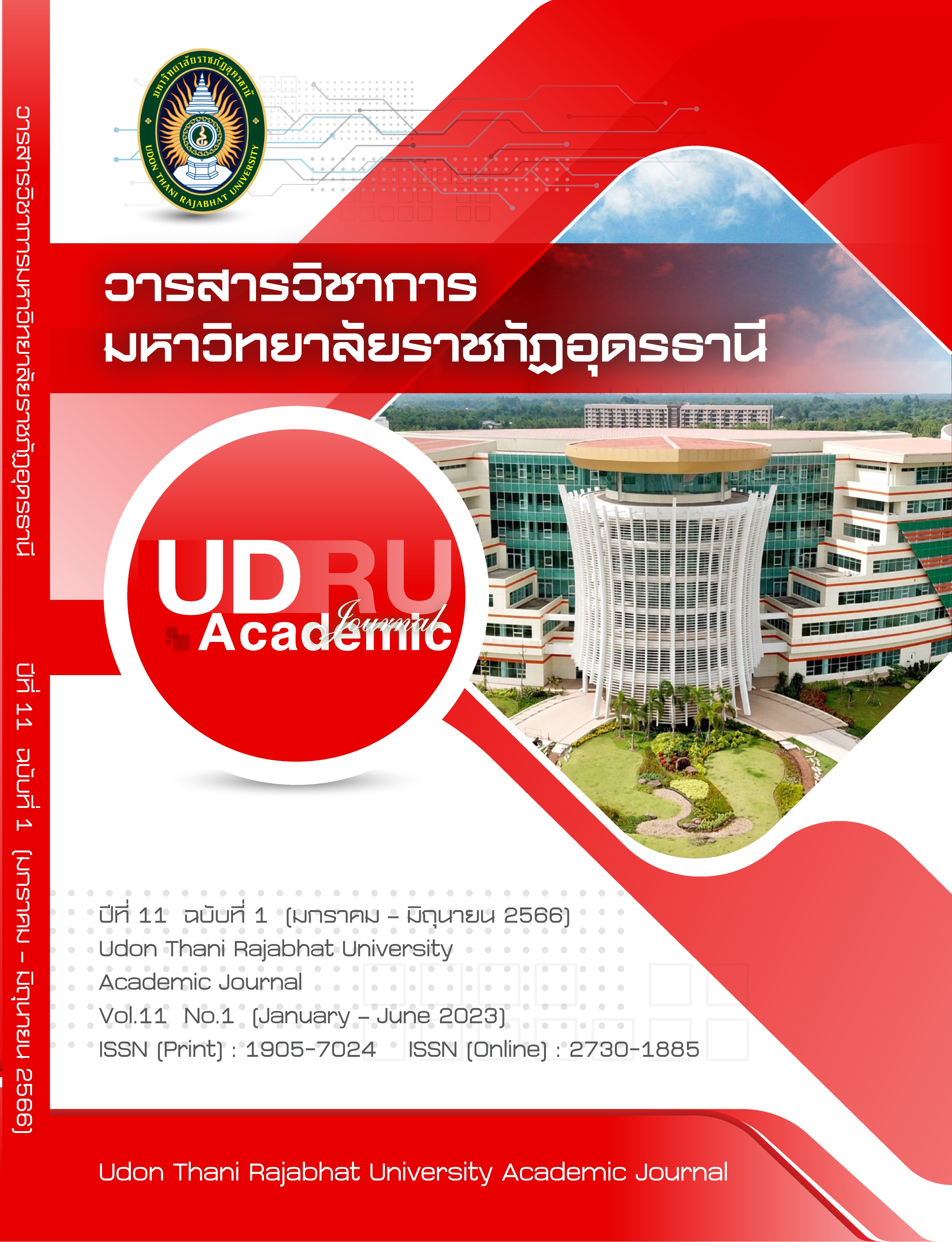สมรรถนะของผู้บริหารมืออาชีพ: บทเรียนจากซีอีโอเชื้อสายอินเดีย
Main Article Content
บทคัดย่อ
บทความนี้ มีวัตถุประสงค์เพื่ออธิบายบริบทที่เกี่ยวข้องต่อการขึ้นสู่ตำแหน่ง CEO ของผู้บริหารเชื้อสายอินเดียในกลุ่มบริษัททางด้านเทคโนโลยีระดับโลก และเพื่อทำความเข้าใจสมรรถนะทางด้านภาวะผู้นำของผู้บริหารเชื้อสายอินเดียในกลุ่มบริษัททางด้านเทคโนโลยีระดับโลก โดยใช้แนวคิดสมรรถนะ และแนวคิดภาวะผู้นำ เป็นกรอบแนวคิดในการศึกษา ผู้เขียนใช้ระเบียบวิธีวิจัยเชิงคุณภาพ โดยใช้วิธีการวิเคราะห์แก่นสาระ และการเปรียบเทียบข้ามกรณีศึกษา จากเอกสาร หนังสือ บทความ และบทสัมภาษณ์ของผู้บริหารที่ได้รับการเผยแพร่ ผลการศึกษาพบว่า บริบทที่เกี่ยวข้องต่อการขึ้นสู่ตำแหน่ง CEO ของผู้บริหารเชื้อสายอินเดียในกลุ่มบริษัททางด้านเทคโนโลยีระดับโลก ได้แก่ บริบทด้านสังคมที่ปัจจัยทางด้านประชากรศาสตร์และสภาพความเหลื่อมล้ำทางสังคมในอินเดีย ส่งผลให้ชาวอินเดียต้องการออกไปใช้ชีวิตและประกอบอาชีพในประเทศที่พัฒนาแล้วมากขึ้น บริบททางด้านการเมืองและนโยบาย ซึ่งนโยบายการศึกษาของอินเดียเน้นการเรียนการสอนทางด้านวิทยาศาสตร์และเทคโนโลยี และนโยบายการให้วีซ่าผู้อพยพของสหรัฐอเมริกาที่ให้วีซ่าแก่ผู้ที่มีทักษะความเชี่ยวชาญพิเศษทางด้านวิทยาศาสตร์และเทคโนโลยี และบริบททางด้านองค์การที่มีความต้องการขยายตลาดขององค์การ และนโยบายการบริหารบุคคลที่ให้ความสำคัญกับความหลากหลายของบุคลากรขององค์การมากขึ้น ทางด้านคุณลักษณะทางด้านภาวะผู้นำนั้น พบว่า ผู้บริหารเชื้อสายอินเดียที่เป็นกรณีศึกษามีคุณลักษณะร่วมที่สำคัญได้แก่ การมีความรู้และประสบการณ์ทั้งทางด้านเทคโนโลยีและการบริหารจัดการ การมีความสามารถในการคิดและวางแผนที่เน้นการนำองค์การอย่างมีวิสัยทัศน์ มีความคิดสร้างสรรค์ และความสามารถในการแก้ปัญหาขององค์การ การมีความสามารถในการปรับตัวและรับมือกับการเปลี่ยนแปลง และการมีความสามารถในการสื่อสารและบริหารความสัมพันธ์กับคน
Downloads
Article Details
เอกสารอ้างอิง
Bhanver, J.S. (2016). Pichai: The Future of Google. Hachette India.
Bird, A., & Mendenhall, M. E. (2016). From cross-cultural management to global leadership: Evolution and adaptation. Journal of World
Business, 51(1), 115-126.
Braun, V., & Clarke, V. (2006). Using thematic analysis in psychology. Qualitative Research in Psychology, 3(2), 77-101.
Financial Time. (2020). Virtual dating on the rise as users seek lockdown love. https://www.ft.com/content/f970c353-65e3-4515-a179-
e94b89ce3775
Fortune. (2022). Fortune 500. https://fortune.com/ranking/fortune500/
Fotso, G. M. N. (2021). Leadership competencies for the 21st century: a review from the Western world literature. European Journal of
Training and Development, 45(6/7), 566-587.
Gopalakrishnan, R., & Banerjee, R. (2018). The made-in-India manager. Hachette UK.
Harvard Business Review. (2017). Manager’s Handbook. Boston: Harvard Business School Publishing.
Hunt, V., Yee, L., Prince, S,, Dixon-Fyle, S. (2018). Delivering through diversity. https://www.mckinsey.com/capabilities/people-and-
organizational-performance/our-insights/delivering-through-diversity#/
Ibarra, H., & Hansen, M. T. (2011). Are you a collaborative leader. Harvard business review, 89(7/8), 68-74.
IMF. (2023). GDP, Current Prices. https://www.imf.org/external/datamapper/NGDPD@WEO/IND/GBR%20
Jokinen, T. (2005). Global leadership competencies: a review and discussion, Journal of European Industrial Training, 29(3), 199-216.
Jones, G.R., George, J.M.. (2021). Essentials of Contemporary Management (9th Edition). McGraw Hill.
McShane, S.L., Von Glinow, M.A.. (2021). Organizational Behavior (9th Edition). McGraw Hill.
McClelland D C. (1973). Testing for competence rather than for intelligence. American Psychologist, 28, 12-21.
Microsoft. (2023). About Company. https://www.microsoft.com/en-us/about.
Nadella, S. (2017). Hit Refresh: the quest to rediscover Microsoft's soul and imagine a better future for everyone. New York, NY: Harper
Business.
Pew Research Center. (2018). Education levels of U.S. immigrants are on the rise.
South China Morning Post. (2019). Sundar Pichai, the millionaire behind Google Chrome and the new CEO of parent company
chrome-and
Spencer, S. M., Rajah, T., Mohan, S., & Lahiri, G. (2008). The Indian CEOs: competencies for success. Vision. The Journal of Business
Perspective, 12(1), 1-10.
The Guardians. (2022). Who is Parag Agrawal? The new Twitter CEO replacing Jack Dorsey.
https://www.theguardian.com/technology/2021/nov/29/who-is-parag-agrawal-new-twitter-ceo
The Times of India. (2022). H-1B visa: Why the American dream just got tougher. https://timesofindia.indiatimes.com/business/india-
business/h-1b-visa-why-the-american-dream-just-got-tougher/articleshow/63576179.cms
Wang, H., Waldman, D.A. and Zhang, H. (2012). Strategic leadership across cultures: current findings and future research directions.
Journal of World Business, 47(4), 571-580.
World Bank. (2022). The Human Capital Index. https://www.worldbank.org/en/publication/human-capital#Index
Zweigenhaft, R. (2021). Diversity Among Fortune 500 CEOs from 2000 to 2020: White Women, Hi-Tech South Asians, and Economically
Privileged Multilingual Immigrants from Around the World. http://whorulesamerica.net/power/diversity_update_2020.html


